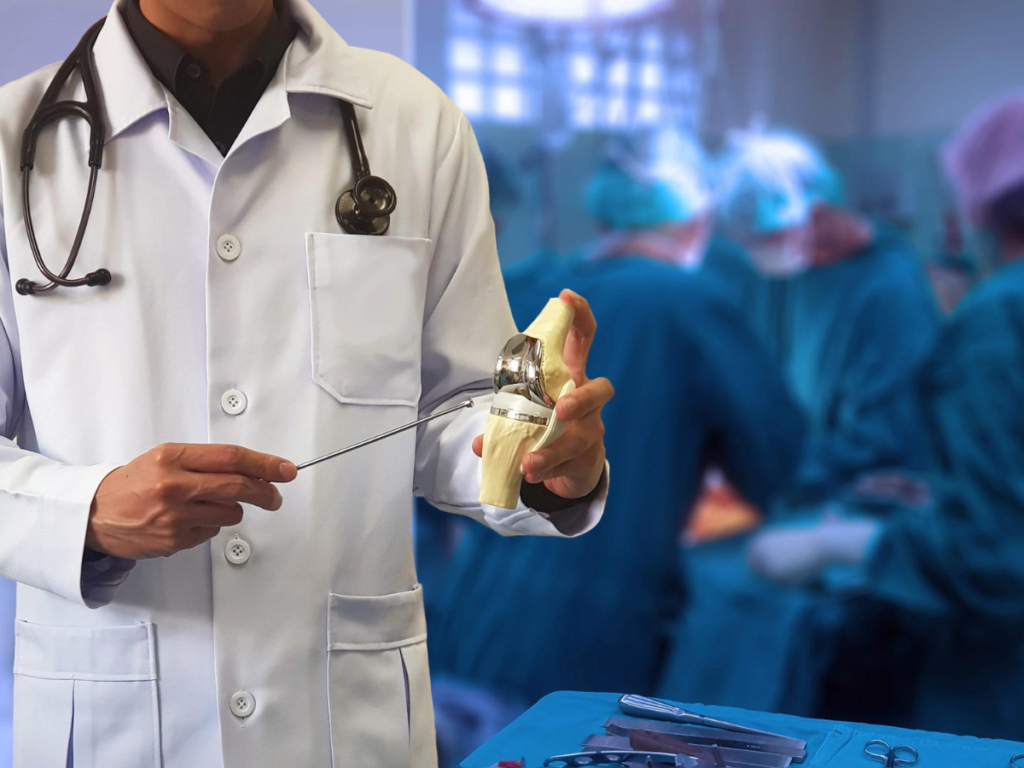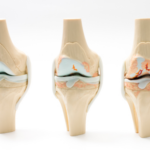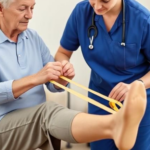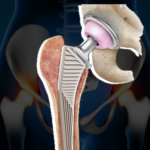
Establishing a secure surgical environment is of utmost importance in healthcare, particularly in sophisticated procedures like robotic knee replacements. At Helios OrthoJoint, renowned as the best orthopedic hospital in Pimpri Chinchwad, Pune, under the expertise of Dr. Saurabh Giri, infection control is pivotal to ensuring patient safety and maximizing positive outcomes. In this detailed blog post, we will explore crucial aspects of infection control during robotic knee replacement surgeries, emphasizing measures that contribute to a secure and sterile surgical environment.
Optimal Air Quality Management:
Maintaining optimal air quality is imperative during robotic knee replacements. Advanced ventilation systems are strategically employed to ensure a continuous flow of clean air, minimizing the risk of airborne contaminants. These systems not only contribute to infection prevention but also create a comfortable and controlled environment for both the surgical team and the patient.
Adherence to Aseptic Technique:
Surgeons and their support teams rigorously follow aseptic techniques to minimize the risk of introducing pathogens. Beyond sterile attire and meticulous hand hygiene, the entire surgical process is carefully planned to limit potential exposure. The precision and discipline involved in adhering to aseptic techniques are fundamental to reducing the likelihood of infections during and after the surgery.
Thorough Preoperative Screening:
Comprehensive preoperative screening of patients is a crucial step in infection control. In addition to routine assessments, advanced diagnostic tools are employed to identify potential sources of infection, such as existing skin conditions or underlying health issues. This detailed screening allows medical professionals to implement additional precautions, customize antibiotic regimens, and tailor the surgical approach to individual patient needs.
Prudent Antibiotic Prophylaxis:
Administering antibiotic prophylaxis before surgery is a standard practice to further reduce the risk of postoperative infections. The choice of antibiotics is carefully considered based on the patient’s medical history, potential susceptibility to specific pathogens, and the latest antimicrobial resistance patterns. This proactive approach ensures that patients receive optimal protection against infection.
Precise Sterile Draping Techniques:
Proper draping of the surgical area is essential to create a sterile field and prevent the introduction of contaminants. Surgeons meticulously drape the patient, robotic equipment, and surrounding surfaces to maintain a controlled and infection-free environment. The use of advanced materials and techniques in sterile draping further enhances the effectiveness of these measures.
Thorough Postoperative Surveillance:
Infection control extends beyond the operating room. Close monitoring of patients during the postoperative period is vital to promptly detect and address any signs of infection. This involves not only clinical observation but also utilizing modern diagnostic tools to ensure early identification of potential complications. Timely intervention based on postoperative surveillance can significantly impact recovery outcomes and minimize the risk of long-term complications.
Conclusion:
Robotic knee replacement surgeries at Helios OrthoJoint, the best orthopedic hospital in Pimpri Chinchwad, Pune, represent a significant advancement in orthopedic care. To ensure the success of these procedures, maintaining a stringent focus on infection control is non-negotiable. By upholding rigorous sterilization protocols, implementing precise aseptic techniques, and incorporating proactive measures throughout the entire surgical process, healthcare providers at Helios OrthoJoint create a safe and controlled environment. This environment promotes optimal patient outcomes, minimizes the risk of postoperative infections, and underscores the commitment to the highest standards of surgical excellence under the leadership of Dr. Saurabh Giri.




